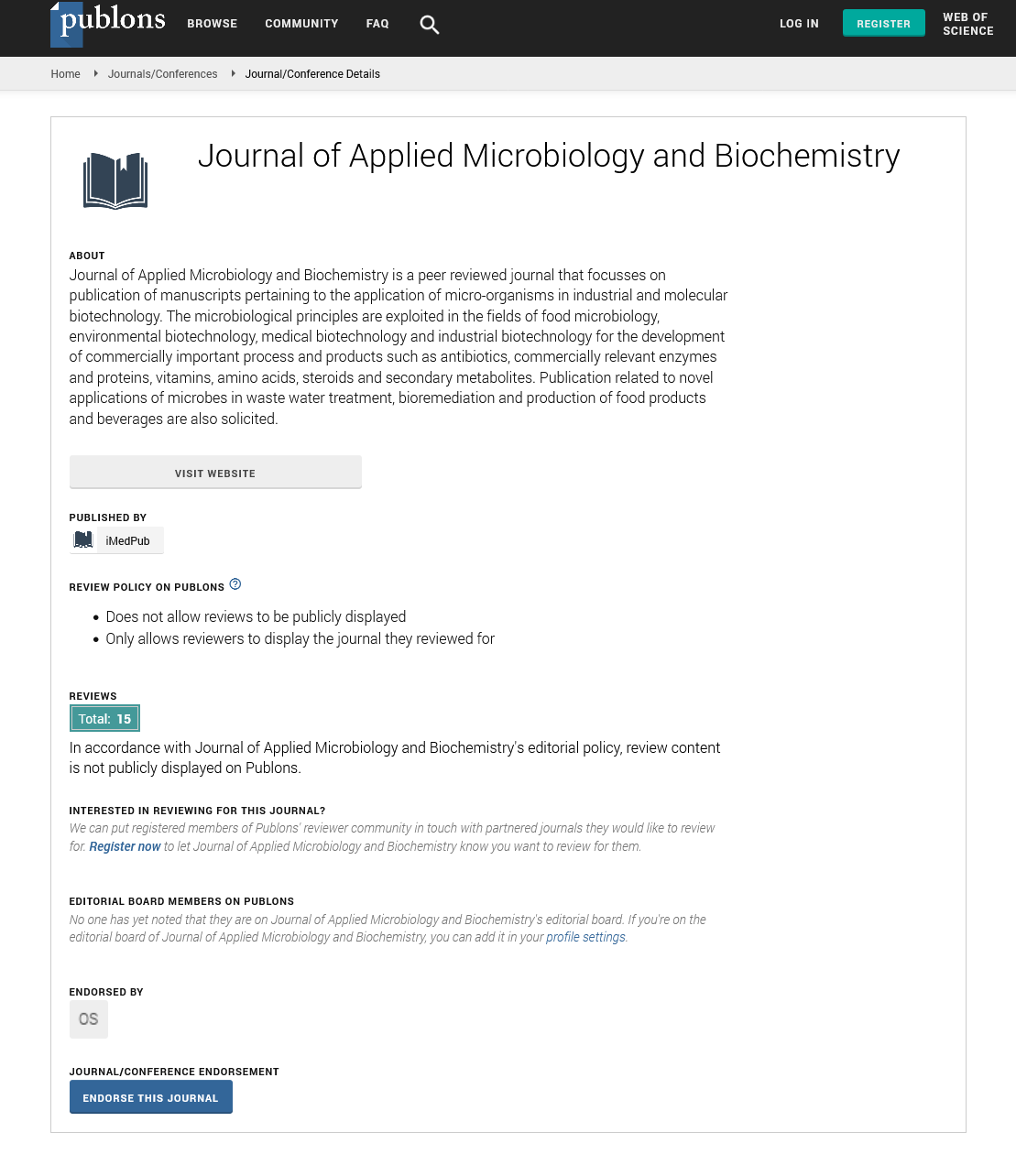ISSN : ISSN: 2576-1412
Journal of Applied Microbiology and Biochemistry
Abstract
Antimicrobial and Antioxidant Activities of Iranian Sumac (Rhus coriaria L.) Fruit Ethanolic Extract
Rhus coriaria L. otherwise known as sumac R coriaria, extracts are important in drug development with numerous pharmacological reputations in the South- Eastern Anatolia, Mediterranean area and Western Asia, especially in Iran. This study aimed at assaying the antimicrobial and antioxidant activities of the Iranian sumac (Rhus coriaria L.) fruit ethanolic extract. The antimicrobial activity of R. coriaria L. fruit ethanolic extract was tested against bacterial strains, including gram positive and gram negative bacteria, derived from foodstuff by micro dilution method. Furthermore, the antioxidant activity of the ethanolic extract was investigated, including scavenging activity of 2,2-diphenyl-1-picrylhydrazyl (DPPH) radicals. Sumac fruit essential oil was also investigated to determine the chemical compositions by the gas chromatography (GC/MS) method. The extract showed a strong antimicrobial activity with concentration dependence and a broad antimicrobial spectrum for all tested bacteria species. Staphylococcus aureus and Salmonella enteric were found to be the most sensitive Gram positive and Gram negative bacteria respectively, with a minimum inhibitory concentration (MIC) of <0.78%. Sumac ethanolic extract showed a high antioxidant effect. The antioxidant property of sumac ethanolic extract was higher than BHT in all of the examined concentrations. Eleven constituents in the fruit’s essential oil were identified. The predominant compounds in the essential oil were malate (39.7%), Butanedioic acid, and diethyl ester (22.01%). Our findings suggest the possibility of using the fruit of R. coriaria L. as a novel source of natural antimicrobial and antioxidant agents for the food and pharmaceutical industries.
Author(s): Saman Mahdavi, Bakhtiar Hesami and Yavar Sharafi
Abstract | Full-Text | PDF
Share This Article
Google Scholar citation report
Citations : 342
Journal of Applied Microbiology and Biochemistry received 342 citations as per Google Scholar report
Journal of Applied Microbiology and Biochemistry peer review process verified at publons
Abstracted/Indexed in
- Google Scholar
- China National Knowledge Infrastructure (CNKI)
- Cosmos IF
- Directory of Research Journal Indexing (DRJI)
- Publons
- Secret Search Engine Labs
Open Access Journals
- Aquaculture & Veterinary Science
- Chemistry & Chemical Sciences
- Clinical Sciences
- Engineering
- General Science
- Genetics & Molecular Biology
- Health Care & Nursing
- Immunology & Microbiology
- Materials Science
- Mathematics & Physics
- Medical Sciences
- Neurology & Psychiatry
- Oncology & Cancer Science
- Pharmaceutical Sciences
